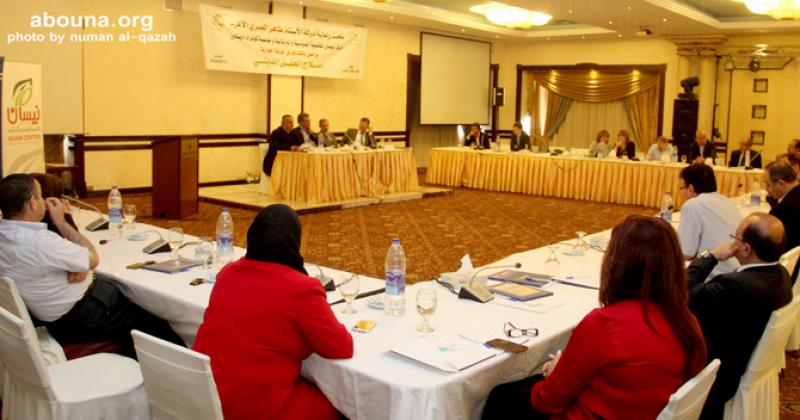We got used to using some terms and to hearing them. One of these terms has different forms and types, namely ''religious reform''. It is sometimes referred to as reform of religious discourse. It implies conveying the correct "religious" information to the generations of today and those to come in a way that complies with their mentality, and without causing any harm to the faith itself, of course.
The Nissan Centre for Political and Parliamentary wanted to do something unfamiliar. Its head Bassam Haddadin called for a conference a few days ago on the reform of the religious field. It is a new term designed to indicate that religion is not merely a discource but rather a model of life, and that there is in this "field'' some trees that need pruning and other harmful herbs that need to be uprooted.
Upon taking part in the conference, I discerned the following five points:
First: Religion is neither a commodity for trading, nor a commercial commodity whose followers make exorbitant gains through trading with religion. It is rather not susceptible to reform particularly with regards to institutional and administrative affairs.
Second: What is important is to acknowledge that there is a flaw in some matters related to religion, and this admission is what leads to visualizing the manner in which the reform would take place.
Third: The ''religious field'' could turn into a ''minefield'' through the politicization of religion and through getting it embroiled in the maze of politics, especially in justifying violence, or rather making violence, intimidation and murder issued in the name of the Almighty God. These ideas need not only reform but rather be uprooted. We have to acknowledge that religion and violence never go hand-in-hand.
Fourth: The religious field includes religious discourse and whatever "messages'' the believers receive on religious holidays as well as in mosques, churches especially on Fridays and Sundays. It is important to reaffirm that the sermon is neither political, nor an electoral statement, nor even the scene to launch terms of hatred towards followers of other religions, but rather a manifestation that it is the belief in the one God as well as it is the cooperation with relatives or the neighbors with whom we share the same faith or rather brotherhood.
Fifth: The religious field is, furthermore, relevant to the educational curricula, and in particular to those relating to the religious history and the way they are introduced to students. Here, I reiterate that what has became a routine is that the school curricula present religion unilaterally, and this neither provides correct historical facts, nor does it eliminate rampant religious ignorance, and nor does it serve in promoting harmony among religions and their followers.
Tackling the religious ''field'' is greatly controversial. What remains to be considered is to try to have this field intact and peaceful, and keep it away from serving as a source of murder and displacement.
